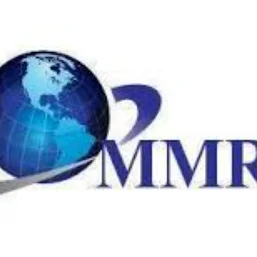Introduction
In today’s world, ensuring workplace safety and health is paramount for organizations aiming to protect their workforce and maintain operational excellence. The ISO 45001 standard, a globally recognized framework for Occupational Health and Safety Management Systems (OHSMS), provides organizations with a structured approach to managing workplace risks and improving employee well-being. To effectively implement and audit this standard, professionals undergo ISO 45001 Lead Auditor Training, a rigorous program designed to equip individuals with the skills and knowledge to conduct audits and ensure compliance. This article explores the key aspects of ISO 45001 Lead Auditor Training, covering its importance, structure, benefits, and career prospects, providing a comprehensive guide for those interested in pursuing this certification.
Importance of ISO 45001 Lead Auditor Training
ISO 45001 Lead Auditor Training is critical for professionals tasked with overseeing the implementation and maintenance of occupational health and safety systems. The training ensures that auditors understand the ISO 45001 standard’s requirements, enabling them to evaluate an organization’s OHSMS effectively. By mastering the auditing process, professionals can identify gaps in safety protocols, recommend corrective actions, and help organizations achieve compliance with international standards. This training is particularly vital in industries such as construction, manufacturing, and oil and gas, where workplace hazards are prevalent. It empowers auditors to foster safer work environments, reduce workplace accidents, and enhance organizational reputation. Furthermore, the training aligns with global best practices, making certified lead auditors valuable assets in multinational organizations striving for consistency in safety management across borders.
The training also plays a pivotal role in regulatory compliance. Many countries require organizations to adhere to strict occupational health and safety regulations, and ISO 45001 certification demonstrates a commitment to these standards. Lead auditors, trained in the intricacies of the standard, ensure that organizations meet these legal obligations, avoiding penalties and fostering a culture of continuous improvement. By understanding the importance of this training, professionals can position themselves as key contributors to workplace safety and organizational success.
Structure of the Training Program
ISO 45001 Lead Auditor Training is typically a five-day, intensive course designed to provide both theoretical and practical knowledge. The program is structured to cover the entire audit process, from planning to reporting, and is often aligned with international auditing standards such as ISO 19011. The curriculum includes several key components:
-
Understanding ISO 45001 Requirements: Participants gain an in-depth understanding of the ISO 45001 standard, including its clauses, risk-based approach, and integration with other management systems. This section emphasizes the Plan-Do-Check-Act (PDCA) cycle, which forms the backbone of the standard.
-
Audit Principles and Techniques: The training covers auditing principles, such as independence, objectivity, and evidence-based decision-making. Participants learn how to plan and conduct audits, including preparing audit checklists, conducting interviews, and reviewing documentation.
-
Practical Exercises and Case Studies: To bridge theory and practice, the training includes role-playing exercises, mock audits, and case studies. These activities simulate real-world auditing scenarios, allowing participants to apply their knowledge in a controlled environment.
-
Examination and Certification: The program concludes with a written examination to assess participants’ understanding of the standard and auditing techniques. Successful candidates receive a globally recognized certification, such as one accredited by the International Register of Certificated Auditors (IRCA) or equivalent bodies.
The structured approach ensures that participants are well-prepared to lead audits, interpret the standard’s requirements, and provide actionable insights to organizations. The hands-on nature of the training also builds confidence in managing complex audit scenarios.
Benefits of Becoming an ISO 45001 Lead Auditor
Pursuing ISO 45001 Lead Auditor Training offers numerous benefits for both individuals and organizations. For professionals, the certification enhances career prospects by demonstrating expertise in a globally recognized standard. Certified lead auditors are in high demand across industries, as organizations increasingly prioritize workplace safety. The training equips individuals with transferable skills, such as critical thinking, problem-solving, and communication, which are valuable in various roles, including safety management, compliance, and consultancy.
For organizations, employing certified lead auditors ensures robust implementation of ISO 45001, leading to improved safety performance and reduced workplace incidents. Auditors can identify potential risks, such as inadequate safety protocols or non-compliance with legal requirements, and recommend corrective measures. This proactive approach not only enhances employee well-being but also boosts operational efficiency by minimizing downtime caused by accidents. Additionally, certification enhances an organization’s reputation, making it more attractive to clients, investors, and regulatory bodies.
Another significant benefit is the ability to conduct internal and external audits effectively. Internal audits help organizations prepare for certification audits, while external audits ensure suppliers and partners comply with ISO 45001 standards. This dual capability strengthens supply chain management and fosters trust among stakeholders. Overall, the training empowers professionals to drive meaningful change in workplace safety, benefiting both their careers and the organizations they serve.
Career Opportunities for Certified Lead Auditors
ISO 45001 Lead Auditor certification opens doors to a wide range of career opportunities. Certified professionals can pursue roles such as:
-
Lead Auditor: Conducting first-, second-, or third-party audits for organizations seeking ISO 45001 certification or maintaining compliance.
-
Health and Safety Manager: Overseeing the implementation of OHSMS, ensuring alignment with ISO 45001 requirements, and managing workplace safety programs.
-
Consultant: Providing expert guidance to organizations on achieving and maintaining ISO 45001 certification, including gap analysis and system improvements.
-
Compliance Officer: Ensuring organizations meet regulatory and industry-specific safety standards, leveraging auditing skills to maintain compliance.
The global recognition of ISO 45001 makes certified lead auditors highly sought after in industries such as manufacturing, construction, healthcare, and energy. Freelance opportunities also abound, as many organizations prefer hiring external auditors for independent assessments. Additionally, the certification provides a competitive edge in the job market, as employers value professionals who can demonstrate expertise in both safety management and auditing. With the growing emphasis on workplace safety, the demand for ISO 45001 lead auditors is expected to rise, making this a rewarding career path for motivated individuals.
Conclusion
ISO 45001 Lead Auditor Training is a vital step for professionals seeking to advance their careers in occupational health and safety management. By equipping individuals with the knowledge and skills to audit OHSMS effectively, the training ensures that organizations can create safer workplaces, achieve compliance, and enhance their reputation. The structured curriculum, combined with practical exercises, prepares participants to handle real-world auditing challenges with confidence. The benefits of certification extend beyond individual career growth, enabling organizations to improve safety performance and operational efficiency. As workplace safety continues to gain prominence globally, the demand for certified ISO 45001 lead auditors will only increase, making this training a valuable investment for professionals and organizations alike. Whether you’re aiming to lead audits, manage safety programs, or provide consultancy, ISO 45001 Lead Auditor Training is a gateway to impactful and rewarding opportunities in the field of occupational health and safety.





